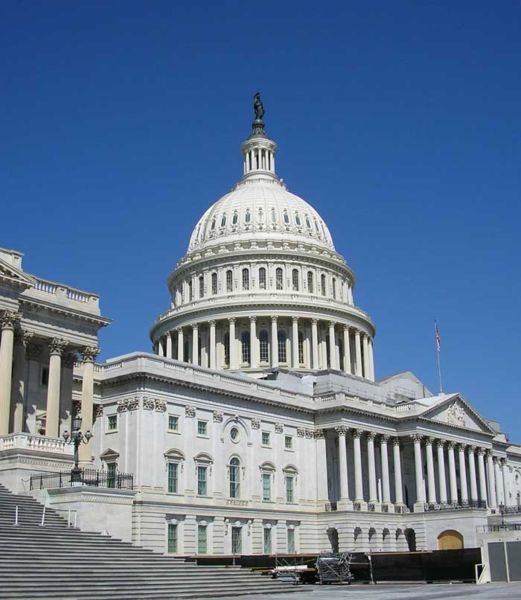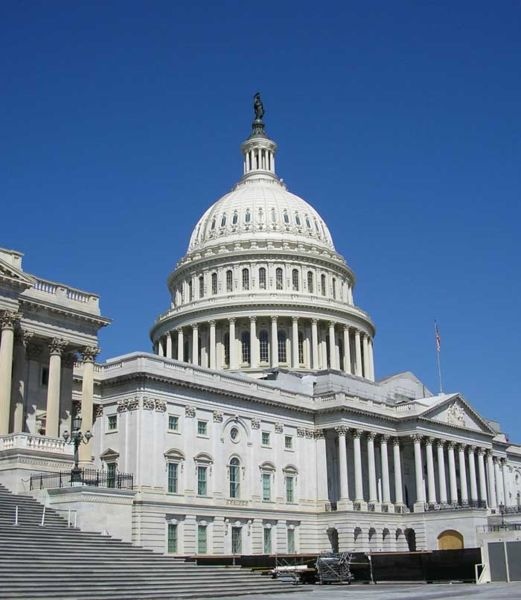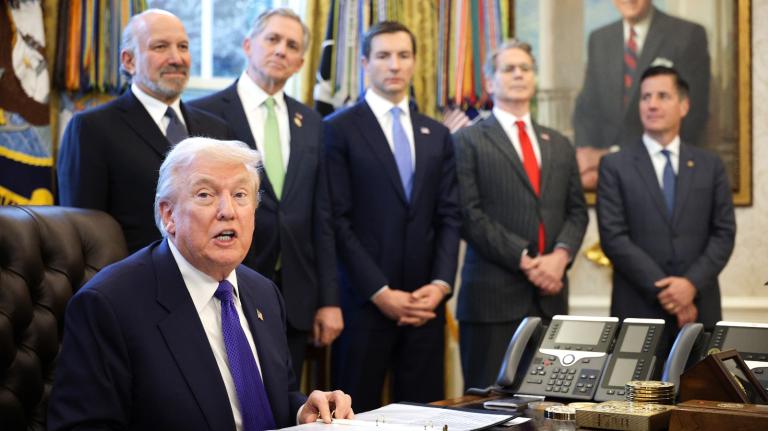 No riders, please.Cross-posted from the Natural Resources Defense Council.
No riders, please.Cross-posted from the Natural Resources Defense Council.
The House yesterday passed a bill to keep the government open for an additional two weeks on a bipartisan basis. The most striking feature of that bill was what it was missing — the Republican leadership dropped all of the anti-environmental exemptions from current law (and all the exemptions from other areas of law) that had been crammed into the full-year Continuing Resolution (H.R. 1) two weeks ago.
These exemptions are known as “riders” because they ride along on a spending bill even though they have no impact whatsoever on the level of government spending. They prevent the government from using money to carry out its responsibility to implement aspects of specific laws; they don’t change the amount of money or personnel the government has.
So why did the Republican leadership drop all these riders after running what amounted to a week-long carnival of destruction on the House floor, in which Tea Party members took turns to see what amendment they could throw into the bill to knock out a public protection? Clearly, the leaders recognized they would lose the public, and maybe even some of their own more sensible members, if they forced a government shutdown over provisions that would roll back safeguards under the Clean Air Act, the Clean Water Act, and other fundamental statutes. The House bill pretty much defined “over-reaching,” and the Senate leadership and the White House had made clear they would not go along.
The leadership may also have remembered that the first vote then-Speaker Newt Gingrich lost after taking over the House in 1995 was when 51 Republicans joined most Democrats to strip anti-environmental riders from a spending bill. And, of course, the government shutdown later that year did not turn out well for the Republicans.
The key question now, of course, is what happens next. The two-week Continuing Resolution (CR) is merely a brief respite in the eyeball-to-eyeball standoff over the fiscal year 2011 budget, and the Republican leadership is claiming it will not “blink” again. The riders are temporarily gone, but definitely not forgotten. The Republican leadership’s gambit now will be to see how many riders they can inject into a year-long CR during private negotiations with the Senate and the White House (and to see how few riders their 87 rambunctious freshmen will live with). This is a dangerous, high-stakes game that will be carried out largely in private by political figures, but in which the public will be the ultimate winner or loser. The Senate, the White House, and reasonable Republicans — some Republicans managed to scare up the gumption to vote against a few amendments on the House floor — need to make clear right now that the final CR cannot contain any riders.
Here’s why:
- The riders are terrible policy, running counter to the public interest and public opinion. They would block safeguards that would reduce air and water pollution to protect health and lives, protect wilderness areas, protect species of concern to commercial fishermen, to cite just a few.
- The riders are irresponsible legislating that would have unintended consequences. Because these riders don’t change law, but just prevent it from being carried out, they can have many perverse consequences. For example, telling EPA not to carry out regulations means that EPA can’t issue permits that businesses are required to have to operate. Telling the government it can’t pay the other side’s attorney fees when it loses puts the government in default of its obligation to pay those fees. What these riders do is the equivalent of putting up a stop sign in the middle of highway to stop one car without noticing that you’ve blocked traffic for miles.
-
Since the bill deals with the entire government, literally hundreds of amendments came out of the woodwork on every conceivable policy issue (even though this was a spending bill) — far too many for any office to do their homework on, especially since it was unclear which ones would actually be offered. In reality, debate was often abbreviated and in the wee hours of the night. Safeguards that had been in the works for years were summarily repudiated without any hearings, committee action, or the other processes that constitute “regular order” and are designed to ensure that members actually know the consequences of what they’re voting on. All that was needed to rollback a protection was a complaint from an industry that a Tea Party supporter accepted at face value and an ideological impulse to cripple the government.
Republicans for years have complained about bundling issues in this way, even though they’ve now packed what may be an unprecedented number of riders into a bill. Yet they still tout “regular order” when it suits them. As recently as last week, a Republican staffer was quoted proudly citing all the appropriate reviews the House Energy and Commerce Committee is undertaking — hearings, multiple committee votes — before eliminating the Environmental Protection Agency’s (EPA) authority to limit carbon dioxide emissions. But at the same time, the House passed an even more sweeping elimination of that authority as part of the CR.
- The riders are especially inappropriate on a bill that is needed to keep the government running five months into the fiscal year. Legislating this way would be bad enough at any time, but cramming these riders into a bill this late in the fiscal year shows an especially cavalier attitude toward the public interest. When spending bills are done at the usual time (more or less) and through standard processes, there is at least some time to hash out disagreements about various provisions. But now, the Republican leadership, pressed by the Tea Party, is playing a game of chicken over a government shutdown. To avoid a shutdown, gaping differences over spending levels need to be resolved. And some of the Republicans are spoiling to throw a vote raising the debt limit into the mix, adding the specter of a government default to raise the ante. With all this at stake and requiring resolution, does it make sense to pile on by adding a wide range of policy issues that don’t belong in a spending bill to begin with? You’d think that would be a rhetorical question, but the Tea Party crowd’s answer apparently is, “Sure. The more destructive the merrier.”
Cooler heads need to prevail. The riders need to be dropped. The Senate, the White House, and the public need to make clear they will stand for no less. These are riders that should make anyone who cares about the public interest extraordinarily uneasy.




